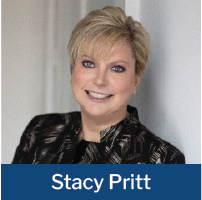In early 2022, PRIM&R approached me about conducting a workshop at the annual meeting for the American College of Laboratory Animal Medicine (ACLAM), called the ACLAM Forum. The workshop was to focus on the changes, both temporary and permanent, to the regulated work environment for animal research oversight and laboratory animal care.
While I thought that this was an interesting topic, I had no idea how interesting it would be until I enlisted the help of two colleagues—Marcel Perret-Gentil, DVM, from the University of Texas San Antonio and Mike Hart, DVM, DACLAM, from Georgia State University. Dr. Perret-Gentil suggested that a survey be conducted on this topic, and we were off!
After securing exempt status from the University of Texas Southwestern Medical Center IRB, we defined our study population and distributed the survey in April of this year.
The survey contained two separate parts, one focusing on the IACUC and the other on Animal Resource Programs (ARPs), and covered workforce and regulatory subjects. We received dozens of comments through the survey: many supported remote work and felt that it provided for better work/life balance as well as sharing that they felt more productive when working remotely. For ARPs, about half of the respondents who worked remotely no longer do so—those who still do typically work remotely 1-2 days per week (more with the administrators of animal resource programs than other position groups). There was also strong sentiment that there should be management on-site to oversee teams that cannot work remotely within ARPs.
From a regulatory perspective, a large number of IACUCs initiated virtual meetings during the pandemic. And while many IACUCs have returned to face-to-face meetings, the majority indicated that they will continue with virtual meetings as an option indefinitely. Some institutions conducted semi-annual facility inspections virtually, but not at the level of virtual meetings. This aligns with the practice of IACUC administrators working remotely, including for IACUC committee meetings, but needing to come in for inspections.
We also gathered substantial information about and how they leverage remote work. One early conclusion from the data supports the notion that within ARPs, the ability to work remotely is a reflection more of an employee’s job responsibilities rather than their job title.
Dr. Perret-Gentil, Dr. Hart, and I had a great time in San Antonio with the veterinarians who attended our ACLAM workshop and we’re planning to revisit this topic during a workshop at the 2022 PRIM&R Annual Conference (PRIMR22) called When Change Is Constant: Balancing Regulatory, Workload, Safety, and Workplace Changes During the Pandemic and Beyond.
During the PRIMR22 workshop, we will take a deep dive into regulatory implications for remote work and oversight activities and examine the impact of recent changes to the labor market on ARPs. Dr. Perret-Gentil, Dr. Hart, and I are also working on publishing our findings from the survey to carefully document the workforce changes experienced within the laboratory animal community as a result of the COVID-19 pandemic.
 Stacy Pritt, DVM, MS, MBA, CPIA, CHRC, EXCS, EXoP(EAR), DACAW, is the Associate Vice President for Research Support and Regulatory Management at the University of Texas Southwestern Medical Center. She also holds a faculty appointment as Assistant Professor of Psychiatry (Ethics Division).
Stacy Pritt, DVM, MS, MBA, CPIA, CHRC, EXCS, EXoP(EAR), DACAW, is the Associate Vice President for Research Support and Regulatory Management at the University of Texas Southwestern Medical Center. She also holds a faculty appointment as Assistant Professor of Psychiatry (Ethics Division).
Dr. Pritt is a recognized authority on animal program regulatory compliance. She regularly speaks to research audiences and has authored more than 25 publications on management and regulatory compliance. A recipient of numerous awards, Dr. Pritt serves on the Board of Directors for the American Society of Laboratory Animal Practitioners (ASLAP) and Americans for Medical Progress (AMP). She is a past-president of the American College of Animal Welfare (ACAW) and Laboratory Animal Welfare Training Exchange (LAWTE).

No comments! Be the first commenter?